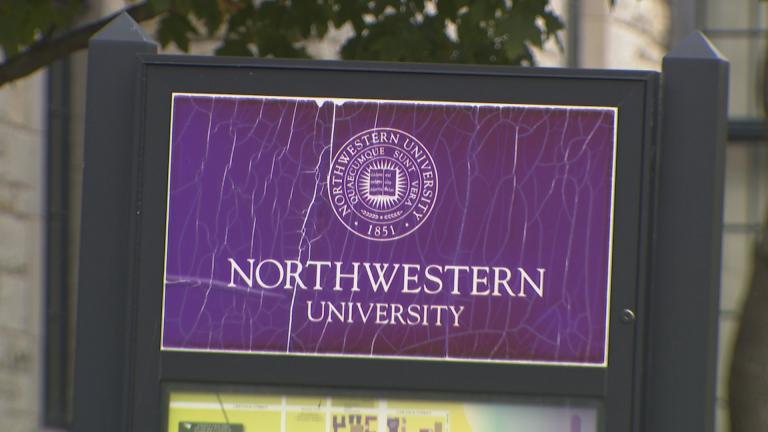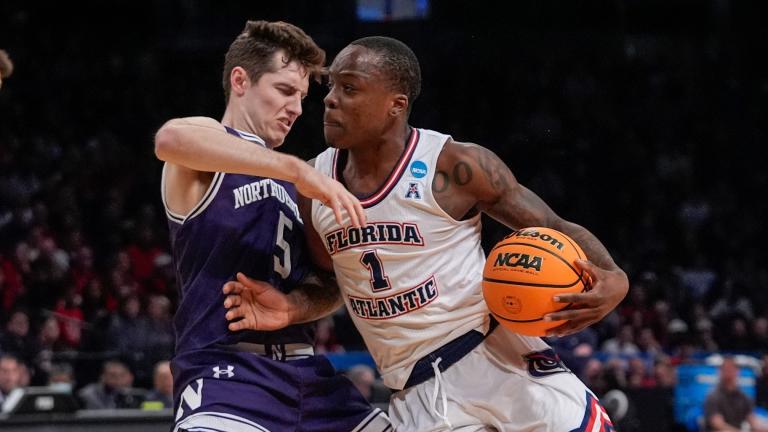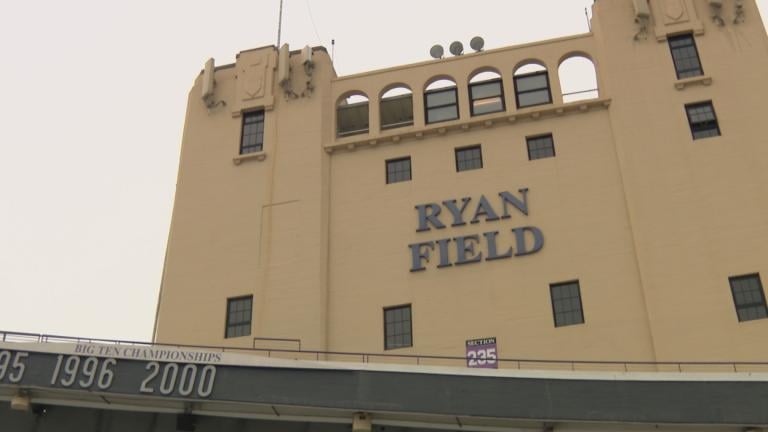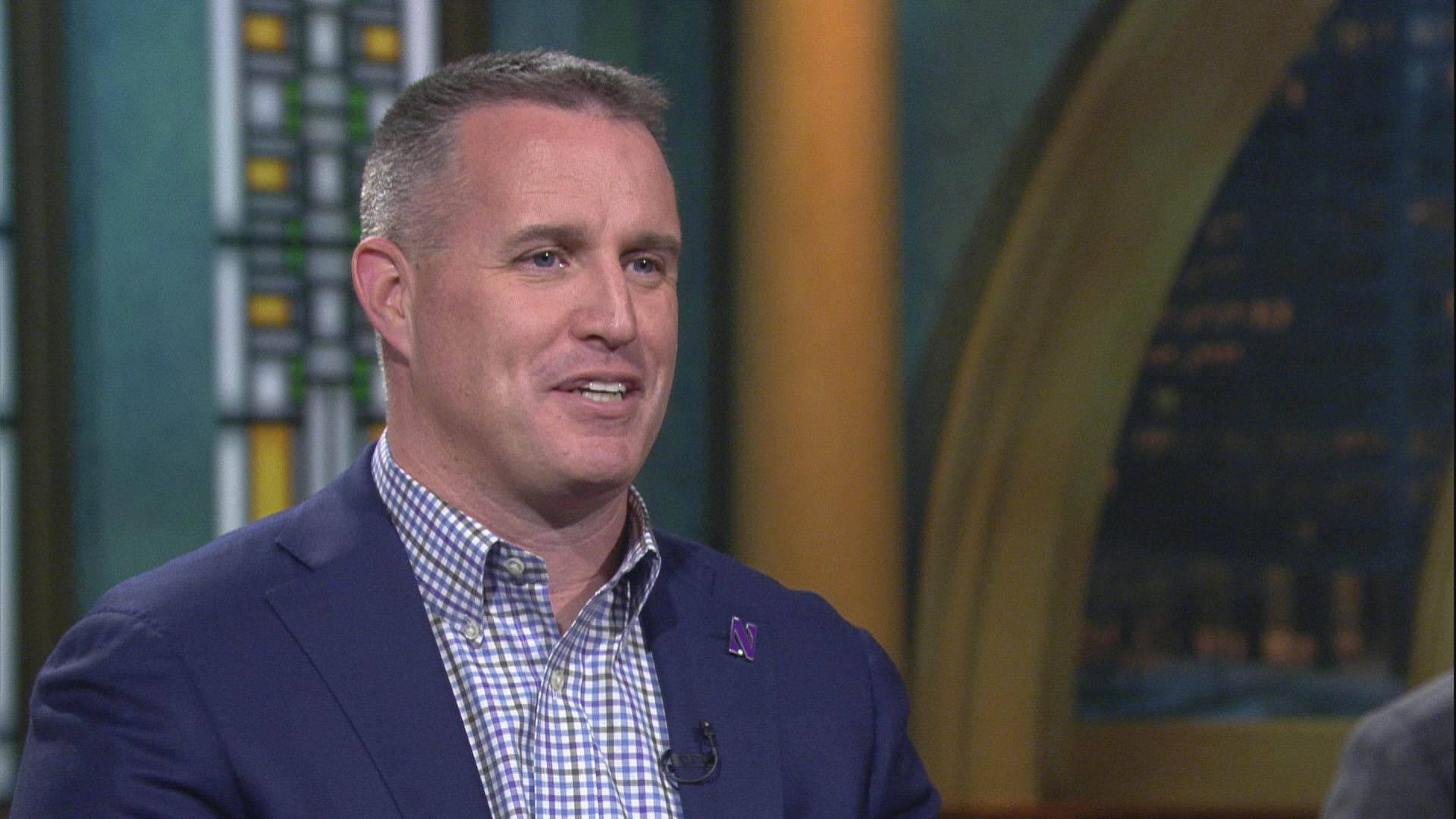 Northwestern University football coach Pat Fitzgerald appears on “Chicago Tonight.”
Northwestern University football coach Pat Fitzgerald appears on “Chicago Tonight.”
Nearly three months after he was fired as Northwestern’s head football coach, Pat Fitzgerald is suing the university claiming he was wrongfully terminated amid a yearslong hazing scandal that allegedly took place under his watch.
Fitzgerald’s attorney Dan Webb on Thursday announced that the former coach is suing Northwestern and its president, Michael Schill, claiming Fitzgerald was “wrongfully and illegally terminated.” He is seeking $130 million in damages.
“The bottom line is, we filed the lawsuit because he was subjected to an unfair, arbitrary and disgraceful course of conduct by both the university and the president, and he did not deserve that to happen to him and his family,” Webb said in a news conference at the law offices of Winston and Strawn LLP.
That $130 million Fitzgerald is seeking includes $68 million that would have been paid through the remainder of his coaching contract and another $62 million in damages.
Fitzgerald was suspended for two weeks, and later fired, in July following reporting that a player said he’d seen “egregious and vile and inhumane behavior.” The player said some of that hazing involved coerced sexual acts — allegations that a second player also told The Daily Northwestern — and that Fitzgerald may have known that hazing took place.
After receiving an allegation of hazing late last year, Northwestern hired attorney Maggie Hickey to investigate. That investigation did not find sufficient evidence that the coaching staff knew about ongoing hazing, but Hickey did find that there were “significant opportunities” to find out about and report the conduct.
That information was revealed in a findings summary, but the full investigation report has not been released.
The university also announced additional steps in response to Hickey’s report, including: ending the football team’s Kenosha training camp, requiring an outside monitor in the team’s locker room who doesn’t report to the football coaching staff, and creating an online portal for student athletes to anonymously report hazing or hazing-related concerns.
According to The Daily Northwestern, the player described a hazing activity he referred to as “running,” which was used to punish players for mistakes made during games or practice. When this occurred, the selected player would be restrained by several upperclassmen wearing “Purge-like” masks, who would begin “dry-humping” the player in a dark locker room, The Daily reported.
Fitzgerald has maintained that he did not know about any hazing.
But in firing Fitzgerald, Schill said the hazing within the football program was “widespread and clearly not a secret within the program” adding that the team’s culture had, in some ways, been “broken.”
Fitzgerald is alleging the university illegally breached both his employment contract and an oral contract in which he agreed to the initial two-week suspension with the expectation that he would not face any additional discipline.
According to the lawsuit, Fitzgerald met with NU athletic director Derrick Gragg and university general counsel Stephanie Graham on July 3, when they said they wanted him to accept the suspension and issue a statement supporting the football program.
“Gragg also stated that Schill felt that Fitzgerald needed to ‘take a hit’ for the findings summarized in the Hickey Report, even though the Hickey Report concluded that Fitzgerald and his staff did not know about any hazing activities within the Northwestern football program,” Fitzgerald claimed in his lawsuit complaint.
Webb also claimed the whistleblower who first brought these allegations to the university's attention held a grudge against both Northwestern and Fitzgerald, and had made statements indicating that he planned to make false claims of hazing.
Since Fitzgerald’s termination, several football players — as well as student athletes from Northwestern’s men’s baseball and women’s volleyball team — have filed lawsuits against the university claiming they too were subjected to harassment.
Fitzgerald has been named in some of those suits, with some players alleging he, Schill, the board of trustees and athletic director Derrick Gragg enabled and concealed sexual misconduct and racial discrimination. Fitzgerald has denied any wrongdoing.
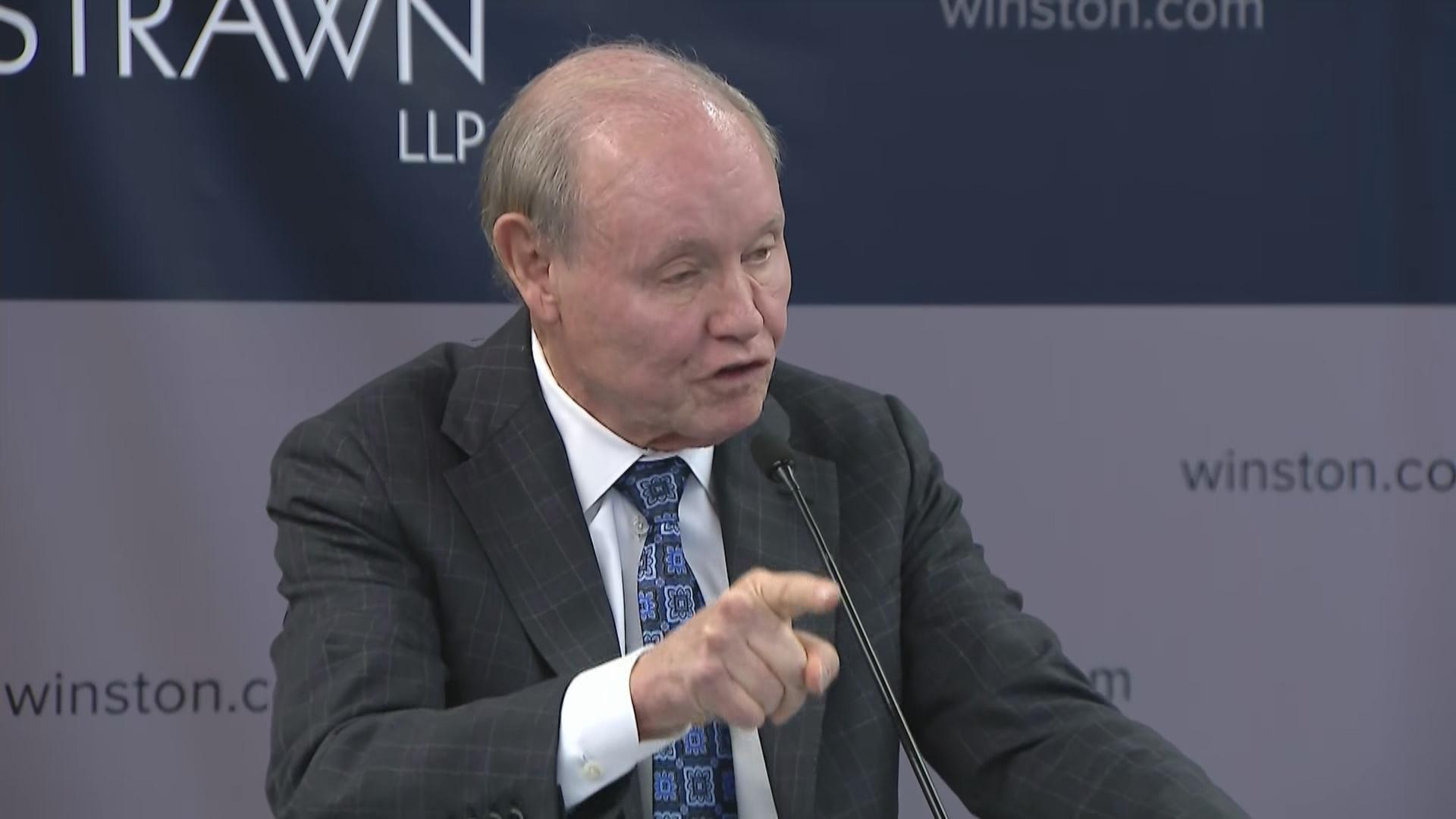 Attorney Dan Webb announced a wrongful termination lawsuit on behalf of his client, former Northwestern football head coach Pat Fitzgerald, on Thursday, Oct. 5, 2023. (WTTW News)
Attorney Dan Webb announced a wrongful termination lawsuit on behalf of his client, former Northwestern football head coach Pat Fitzgerald, on Thursday, Oct. 5, 2023. (WTTW News)
Webb said he’s spoken with several former players and coaches, none of whom have said that they witnessed hazing “in any significant amount whatsoever.” He also suggested subsequent lawsuits that came after the initial whistleblower’s claims were filed by people seeking to “take advantage of a situation.”
Asked to clarify, Webb compared the situation to that of someone suing Philip Morris claiming that smoking gave them cancer.
“I can tell you 50 more will follow with lawsuits,” he said. “It happens in every situation. That’s what I call taking advantage of a situation. People will think that there’s a chance to get a pot of gold at the end of a rainbow and they will file lawsuits that are not merited. I have no way to know, until we get into discovery, what the details are.”
Fitzgerald was not present during Webb’s press conference.
Attorneys representing several former student-athletes who have filed their own lawsuits said Thursday that Fitzgerald’s own claims are “tone deaf” and “all about financial gain for him.”
Steve Levin, of Levin & Perconti, said during a separate news conference Thursday afternoon that it was “really troubling” to hear Webb paint the various football players who’ve filed suit as “liars.”
“I dont think it’s a lawyer's role to assassinate the character of people who bring lawsuits,” he said. “Fitz’s lawyer did not speak to our clients, did not know who our clients were, had not heard our clients’ stories, yet called them opportunistic liars.”
In response to the lawsuit, a Northwestern spokesperson said Fitzgerald was “responsible for the conduct of the program” and he “had the responsibility to know that hazing was occurring and to stop it. He failed to do so.”
“The safety of our students remains our highest priority, and we deeply regret that any student-athletes experienced hazing,” the university said in a statement. “We remain confident that the University acted appropriately in terminating Fitzgerald and we will vigorously defend our position in court.”
The university pointed to the previous independent investigation, which revealed that multiple current and former football players acknowledged that hazing took place within the football program.
“Student-athletes across a range of years corroborated these findings, showing beyond question that hazing — which included nudity and sexualized acts — took place on Fitzgerald’s watch,” the university said.
Fitzgerald, a Northwestern alumnus, played on the university’s football team from 1993-1996. He began coaching there in 2001 and became head coach in 2006, leading the team to a 110-101 record during his tenure.
This is a developing story.
Contact Matt Masterson: @ByMattMasterson | [email protected] | (773) 509-5431

